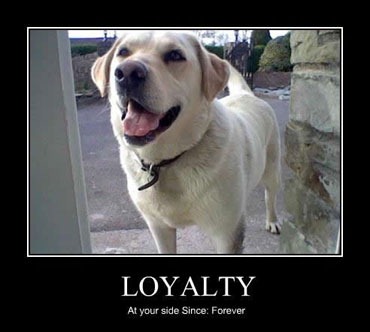Loyalty: 8 Reasons why it is powerful stuff
Originally published on cuinsight.com.
Written by Anthony Demangone
Directors and officers of a corporation in making all decisions in their capacities as corporate fiduciaries must act without personal economic conflict. The duty of loyalty can be breached either by making a self-interested transaction or taking a corporate opportunity.
I love the duty of loyalty. As a concept, it is extremely powerful, yet highly underrated.
YouâÂÂll hear the term from attorneys as they talk to credit union directors. Many donâÂÂt realize that the concept extends beyond the board to include officers and sometimes key employees.
Unfortunately, the power of the duty of loyalty gets lost in discussions of case law and litigation. We focus on trees, but ignore the forest. And thatâÂÂs too bad, because as I said above, it is powerful stuff.
The concept of the duty of loyalty often is tied to financial interests. For example, a director shouldnâÂÂt vote on whether to hire a vendor that is partially owned by his son. His loyalty is to the credit union as a director. He cannot show any loyalty to his son, so he should announce the conflict and sit that vote out.
I wish, however, that the duty was extended, or in a way, amplified. If I were King, hereâÂÂs how IâÂÂd rework the duty of loyalty.
As a director or officer, you must remove âÂÂyouâ from your thoughts. When you walk into the credit union, check your baggage â your hunches, dislikes, biases, and the like, at the door. Feel free to pick them up later. But when you work for the credit union, youâÂÂll make decisions that are best for the membership.Â
That sounds simple, but it is anything but. To be truly loyal, youâÂÂdâ¦
- Listen to dissenting views. Someone else might have an idea that would better serve the membership.
- Approach decisions with no pre-conceived notions. An internal bias might shield you from something that would better serve the membership.
- Listen more than you speak. YouâÂÂll never learn anything new by listening to yourself. By listening more, you might pick up something that would better serve the membership.
- Ignore rank. I donâÂÂt care where an idea comes from, as long as it lets us better serve the membership.
- Tackle tough problems. Not easy, but my guess is that while the process is tough for you, it would better serve the membership.
- Check your ego. Ego is about you. Not about what is best for the membership.
- Be respectful to colleagues. Being petty, condescending, rude or inconsiderate is selfish and destructive. It stops progress and crushes morale. Probably not what is best for the membership.
- Be self-reflective. There are likely ways that you could do better, which would better serve the membership.
During your career, I bet youâÂÂve come across people that would do anything for the team. Anything to help a member. They give up their time at the drop of the hat. It is never about them. It is always about the team or the credit union. They are selfless. They are servants
They are loyal.
And to me, that might be the highest compliment possible.
***
I hope to see many of you at two upcoming NAFCU conferences.  First, is the NAFCU Regulatory Compliance School.  Perhaps my first love!  Second, I'll be attending NAFCU's CEOs and Senior Executive's Conference.  If you are are attending either, please let me know. I'll be sure to say hello!

